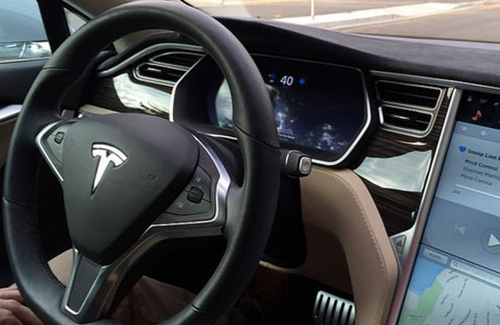We may soon find out whether or not Tesla has been deceptive in presenting its driver data.According to Reuters, a Dutch government’s forensic lab says it has decrypted the car’s data-storage system, which has uncovered “a wealth of information that could be used to investigate serious accidents.” But the best part: the Netherlands Forensic Institute (NFI) says it has found “far more data than investigators had previously been aware of”. How unexpected.
The NFI said that the decrypted data proved that Tesla stores information about Autopilot usage, speed, accelerator pedal position, steering wheel angle and brake usage. Some of the data can be available for over a year, the report says. Francis Hoogendijk, a digital investigator at the NFI, said: “These data contain a wealth of information for forensic investigators and traffic accident analysts and can help with a criminal investigation after a fatal traffic accident or an accident with injury.”For example, one investigation took place when the NFI looked into a collision involving a Tesla using Autopilot behind a car that braked hard. The investigation showed that the driver of the Tesla reacted with the expected response time, but the collision happened because the Tesla was too close.  Aart Spek, NFI investigator, told Reuters: “That makes it interesting, because who is responsible for the following distance: the car or the driver?”The lab said it decided to forego seeking the data from Tesla in favor of reverse engineering data logs for it. The NFI said it was “in order to objectively investigate them,” which we’re guessing is a kind way to say “side-step Elon Musk’s bullshit”. Data storage has been in question since Tesla announced earlier this year it had established a site in China to help store data. Tesla provides data in the Netherlands when a court orders it to do so, but now the NFI knows exactly what kind of data the carmaker is storing and for how long. “You cannot claim what you do not know, so it’s helpful that we now know what else is being stored,” the NFI said.”Tesla however only supplies a specific subset of signals, only the ones requested, for a specific timeframe, whereas the log files contain all the recorded signals,” the institute added. We’re sure this revelation will catch the ear of the NHTSA, who is in the midst of a broad 700,000+ vehicle investigation into Tesla’s Autopilot and its potential involvement in accidents involving emergency vehicles.
Aart Spek, NFI investigator, told Reuters: “That makes it interesting, because who is responsible for the following distance: the car or the driver?”The lab said it decided to forego seeking the data from Tesla in favor of reverse engineering data logs for it. The NFI said it was “in order to objectively investigate them,” which we’re guessing is a kind way to say “side-step Elon Musk’s bullshit”. Data storage has been in question since Tesla announced earlier this year it had established a site in China to help store data. Tesla provides data in the Netherlands when a court orders it to do so, but now the NFI knows exactly what kind of data the carmaker is storing and for how long. “You cannot claim what you do not know, so it’s helpful that we now know what else is being stored,” the NFI said.”Tesla however only supplies a specific subset of signals, only the ones requested, for a specific timeframe, whereas the log files contain all the recorded signals,” the institute added. We’re sure this revelation will catch the ear of the NHTSA, who is in the midst of a broad 700,000+ vehicle investigation into Tesla’s Autopilot and its potential involvement in accidents involving emergency vehicles.

Leave a comment